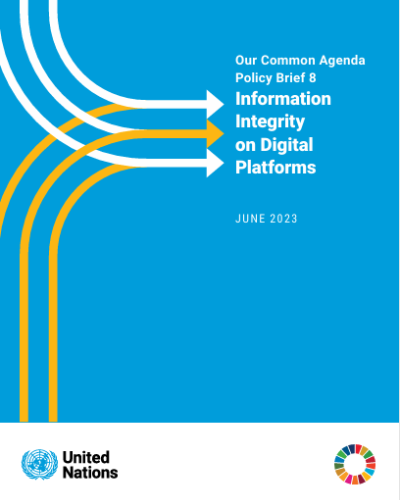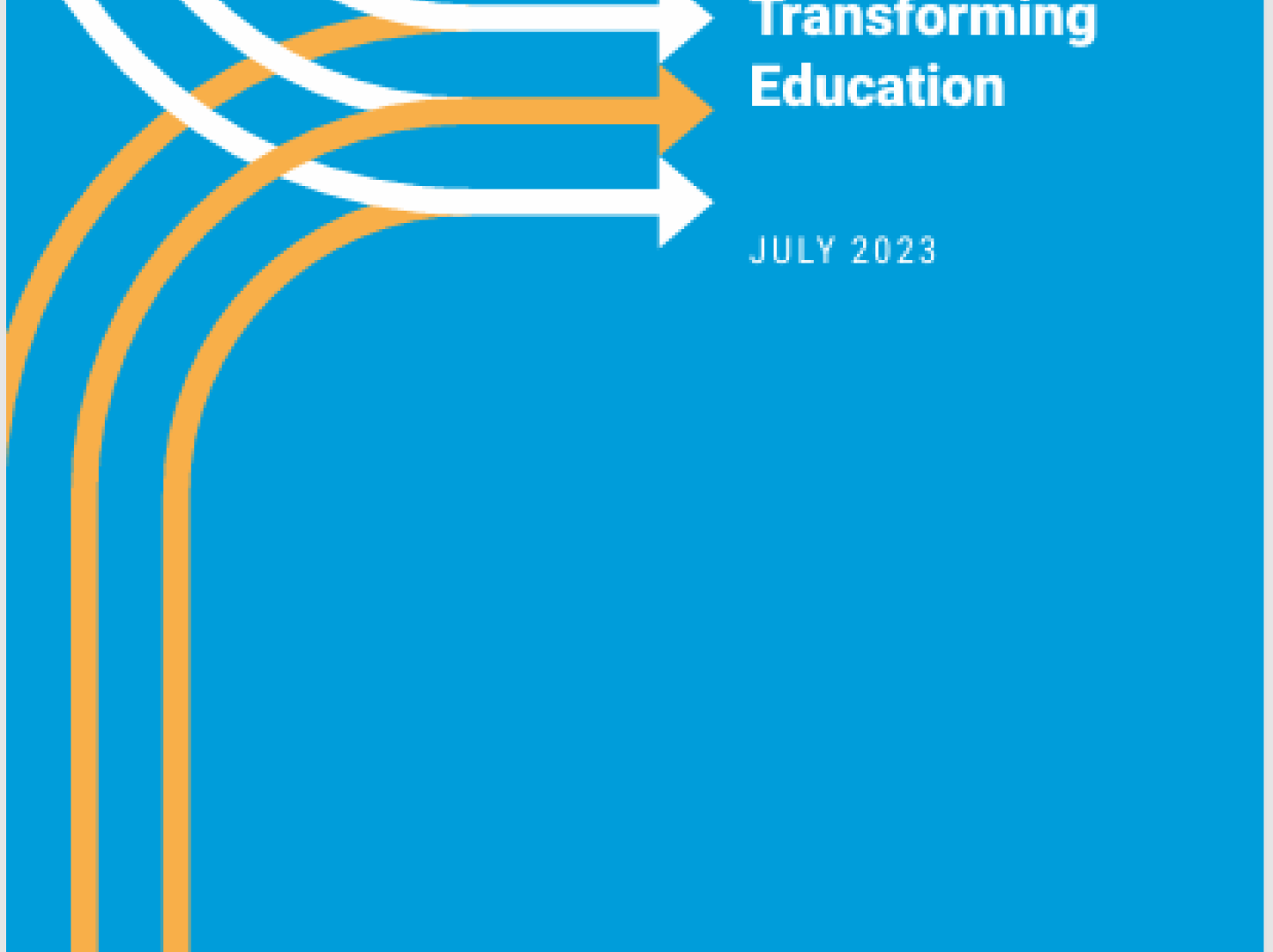Our Common Agenda Policy Brief 8: Information Integrity on Digital Platforms

The present policy brief is focused on how threats to information integrity are having an impact on progress on global, national and local issues. In Our Common Agenda, I called for empirically backed consensus around facts, science and knowledge. To that end, the present brief outlines potential principles for a code of conduct that will help to guide Member States, the digital platforms and other stakeholders in their efforts to make the digital space more inclusive and safer for all, while vigorously defending the right to freedom of opinion and expression, and the right to access information. The Code of Conduct for Information Integrity on Digital Platforms is being developed in the context of preparations for the Summit of the Future.
My hope is that it will provide a gold standard for guiding action to strengthen information integrity. Digital platforms are crucial tools that have transformed social, cultural and political interactions everywhere. Across the world, they connect concerned global citizens on issues that matter. Platforms help the United Nations to inform and engage people directly as we strive for peace, dig nity and equality on a healthy planet. They have given people hope in times of crisis and struggle, amplified voices that were previously unheard and breathed life into global movements.
Yet these same platforms have also exposed a darker side of the digital ecosystem. They have enabled the rapid spread of lies and hate, causing real harm on a global scale. Optimism over the potential of social media to connect and engage people has been dampened as mis- and disinfor mation and hate speech have surged from the margins of digital space into the mainstream. The danger cannot be overstated. Social media- enabled hate speech and disinformation can lead to violence and death.1 The ability to disseminate large-scale disinformation to undermine.
scientifically established facts poses an exis tential risk to humanity (A/75/982, para. 26) and endangers democratic institutions and funda mental human rights. These risks have further in tensified because of rapid advancements in tech nology, such as generative artificial intelligence. Across the world, the United Nations is monitor ing how mis- and disinformation and hate speech can threaten progress towards the Sustainable Development Goals. It has become clear that business as usual is not an option.












